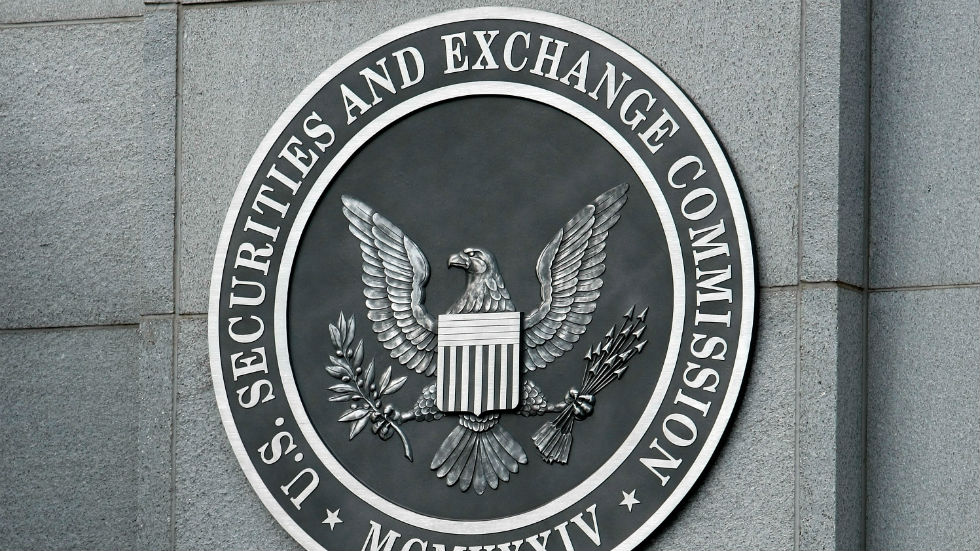
Bitcoin in Russia will be officially “recognized” by 2018, but each transaction will be subjected to monitoring.
In a recent statement by the Russian central bank, Deputy Finance Minister Alexey Moiseev explains – in an interview quoted by Bloomberg – that a legal position about Bitcoin in Russia will be taken in the next future.
Recently, bitcoin and altcoins had been put aside regarding regulation, with users and companies operating in Russia threatened with takedowns and jail.
In October, Russian communications watchdog Roskomnadzor blocked access to a peer-to-peer marketplace called LocalBitcoins, but developers responded by setting up a new mirror site, LocalBitcoins.net.
“The state needs to know who at every moment of time stands on both sides of the financial chain. If there’s a transaction, the people who facilitate it should understand from whom they bought and to whom they were selling, just like with bank operations,” said Moiseev about the Russian government position.
While digital currencies are still yet to receive an official status, Bloomberg reports that they will be treated as assets, cash or security by mid-2017.
Back in January, Deputy Olga Skorobogatova (Bank of Russia) commented that authorities “would not like to concretely block anything” instead of “understanding how to approach cryptocurrency and from this generating a basis for regulation.”
Read more about Bitcoin in Russia by clicking on the blog post titles below.
Open your free digital wallet here to store your cryptocurrencies in a safe place.

A new project for Bitcoin Sweden regulation has moved to its second phase. In fact, the Sweden’s land registry authority, the so- called Lantmäteriet, wants to use the distributed ledger tech with the main goal of recording property deals.
This project was conducted by the blockchain startup called ChromaWay and the consultancy group Kairos Future, that are also working in partnership with two banks: SBAB and Landshypotek.
Talking about the project’s potential, ChromaWay CEO Henrik Hjelte commented:
“It could be a great benefit for economic growth”.
Also, he said that Sweden is the ideal country to test a distributed ledger system for land titles, because trust in public authorities is higher than elsewhere and it could influence other countries to do the same in the next future.
Thanks to this system, a buyer and seller would open a contract where banks and the land registry can view the workflow of the deal, such as due dates for payments.
“In the blockchain confirmation of each step in the workflow is made with a hash, like the blockchain normally. Everyone has the same information and you can check it yourself,” said Magnus Kempe of Kairos Future.
Another use case for this project is the potential verification of an IOU issued by the bank to its property buyer.
“That part is going to be hidden for the others in the contract. You will only have the hash confirming from the bank that the IOU has been signed,” commented Kempe.
That said, SBAB Bank explaind it has no imminent plans to implement the blockchain:
“Our reason to participate in the project has not been to actually implement the solution in our current processes. But rather an opportunity for us to get a better understanding of the blockchain technology and how it might possibly fit in our future products/offerings.”
Recently, the EU passed a directive that puts more weight behind digital signatures; a similar bill has been proposed in Arizona too.
Click here to read more about EU regulation related to bitcoin and blockchain.
A the moment, this land registry project is looking at new ways for working at this issue.
“Actually, the land registry today, they don’t receive much physical paper, they get PDFs of the contracts which are signed electronically so they don’t store the physical contracts. What we are thinking of is, you can actually sign the contract digitally in the blockchain to the land registry, they can award the land titles and then you can throw away the paper so you’re not dependent on the physical archive.”
According to ChromaWay’s Henrik Hjelte, the use of blockchain could be disruprive in order to manage ownership of property and improving transparency in real estate sales.
Open your free digital wallet here to store your cryptocurrencies in a safe place.

Another move has been made in Arizona in order to make Blockchain regulation more effective.
In fact, a legislature has creared a bill that would recognize the distributed ledger signature and smart contracts under state law.
At the moment the bill has been sent to the governor’s desk for a final approval.
As previously reported, this bill would make data tied to a blockchain “considered to be in an electronic format and to be an electronic record” in the US State of Arizona.
Also, the bill quotes specifically the Ethereum smart contracts, so there is a specific effort with the main goal of capturing new kinds of delivering information – the distributed ledger– under existing laws.
The bill explains:
“‘Smart contract’ means an event-driven program, with state, that runs on a distributed, decentralized, shared and replicated ledger and that can take custody over and instruct transfer of assets on that ledger.”
This bill was sent to sent to Governator Doug Ducey’s office on March 27th, after clearing the Senate by a 28-1 vote on the 23rd.
Even if it’s not so clear if or when the governor will sign the bill, its support suggests that this measure will see the light soon.
A few members of the legislature’s lower chamber, in fact, approved this bill unanimously previously this year.
This Arizona bill is similar to a legislation passed and signed in Vermont last year. There, lawmakers proposed to allow data embedded on a blockchain to be used in a court of law.
Click here to read more about Blockchain regulation worldwide.
Open your free digital wallet here to store your cryptocurrencies in a safe place.

A new bill has been proposed to the Nevada Senate and, if it pass, will stop local taxes and fees on the use of a blockchain ledger, both for payments and contracts.
Nevada Senate Bill 398 was filed yesterday and presented by Senator Ben Kieckhefer, who wants to create a legal level for the use of blockchain-based networks.
Notably, this bill will also stop local governments asking for taxes on the use of the distributed ledger or to require a special licensure in order to use it.
This new proposed bill explains:
“A local governmental entity shall not: Impose any tax or fee on the use of a blockchain or smart contract by any person or entity; Require any person or entity to obtain from the local governmental entity any certificate, license or permit to use a blockchain or smart contract; or Impose any other requirement relating to the use of a blockchain or smart contract by any person or entity.”
If this bill pass, its benefits won’t be applied only to these potential economic expenses.
Kieckhefer’s suggestion, in fact, will allow blockchain records to be used in proceedings, noting that “if a law requires a record to be in writing, submission of a blockchain which electronically contains the record satisfies the law”.
“A smart contract, record or signature may not be denied legal effect or enforceability solely because a blockchain was used to create, store or verify the smart contract, record or signature. In a proceeding, evidence of a smart contract, record or signature must not be excluded solely because a blockchain was used to create, store or verify the smart contract, record or signature,”the proposed bill states.
Last month a similar proposal was made in Arizona, or a further move to legitimize the use of blockchain distributed ledger; a previous effort was also proposed in Vermont back in 2016.
Open your free digital wallet here to store your cryptocurrencies in a safe place.

Soon a new bitcoin exchange regulation in China may be required to ensure know-your-customers (KYC) verifications.
According to an article published by Caixin, the People’s Bank of China issued a new paper for the Chinese exchanges on which it is looking for comments for the proposed regulation.
This move is part of a effort by the Chinese central bank in order to have a bitcoin exchange regulation and avoid money laundering and other financial crimes.
According to the official press release, this paper explains both a regulation related to the anti-money laundering (AML) issues and the creation of a customer identification system.
Bitcoin users will have to own an on-site certification if they want to deposit funds. To do se, they will have to present identification at the time of registration. Also, for clients who hold more than ¥50,000 (over $7,200) in volume, a remote video certification will be required to authenticate their own identity.
The document also contemplates that there must be a senior management team who controls AML procedures and reports dubious transactions.
This news come after the PBoC’s decision made back in January that indicates to intervene in the Chinese bitcoin market during this period of heavy bitcoin price volatility.
Since then, bitcoin exchanges started to implement several new policies, ending margin trading and freezing withdrawals for a few cryptocurrencies.
At the moment, while I’m writing this article, bitcoin Chinese exchange withdrawals are still frozen.
Open your free digital wallet here to store your cryptocurrencies in a safe place.

The US Securities and Exchange Commission (SEC) has to make an important decision related to the much-anticipated bitcoin ETF, or the bitcoin-based exchange-traded fund.
This decision is expected by Friday, as the SEC has an deadline fixed on March 11st to make the approve or disapprove a proposed rule change that would allow the creation of the first worldwide bitcoin ETF.
But, because the 11st falls on a Saturday, this decision could come before that date, maybe on Friday.
The proposal came three years ago, in mid 2013, by investors Cameron and Tyler Winklevoss.
If the fund receives approval, several experts speculated that bitcoin price could grow and maybe this expected approval already drove the bitcoin price in recent weeks, setting new all time highs in the recent period.
In fact, Bitcoin price neared $1,300 in recent days, reaching $1,293.47 on 3rd March.
By the way, bitcoin price kept falling back to $1,300, experiencing a drop on 7th March, when markets drop below $1,200 for a few hours.
Otherwise, if the SEC decides to reject the proposal that would allow the Bats Global Exchange to list the bitcoin ETF, experts said that the digital currency price would be negatively affected.
Phil Bak, CEO atACSI Funds explained that generally the SEC wants to avoid the appearance of “publicly rejecting an ETF”, so if the agency didn’t plan on approving a fund, it would ask for the filing to be pulled ahead before any final decision.
“In this case, the government agency may want to show the world it is unsure about bitcoin. Alternatively, it could also be that the advocates want to support it to the end and let this proposed fund get its day in court, rejection or not.”
In the lack of definitive statements published by the SEC, it’s really easy to understand why a common return of uncertainty has emerged during this week.
Arthur Hayes, CEO at BitMEX, explained:
“I have heard good arguments for and against the ETF being approved. At this point it is a coin toss.”
At the moment people who are waiting for the SEC’s decision canno do anything instead of only watching and waiting for the 11th March deadline.
ETF expert and co-founder at RagingBull, Jeff Bishop, commented that the SEC could make its decision further past the 11th, also because of the recent price gain.
“I have the feeling they will find a way to delay this even more though. With bitcoin at all-time highs and the SEC having a terrible record for allowing new ETFs to come to market at absolute tops, they will likely push back on this until things cool a bit. It should be up to investors to decide the true price of bitcoin. The more liquidity and options [there are] to trade it, the more transparent and accurate the pricing will be. It should not be up to a government agency to withhold something like this from the public.”
Open your free digital wallet here to store your cryptocurrencies in a safe place.

Below you can read the full Europe Bitcoin research published by the European Parliament a few days ago.
It is related to the blockchain technology and digital currencies, exploring distributed ledger use cases including digital payments, patent protection, smart contracts and online voting.
This research provides an educational point of view for EU’s legislative members, so probably we will experience a new Bitcoin regulation in the next future.
Researchers who works at the EU Parliament have studied several aspects of the distributed ledger in the past.
For example, a working group sponsored by the Parliament studied how the blockchain’s power to secure data could provide transparency during elections.
“Although blockchains are not the solution for every problem, and even if they will not revolutionize every aspect of our lives, they could have a substantial impact in many areas, and it is necessary to be prepared for the challenges and opportunities they present.”
The research suggests a few possible approaches for the European lawmakers, who recently approved the creation for a new task force focused on blockchain and digital currencies.
Also, the paper suggests more future explorations by saying that regulators could regulate and yield legal legitimacy to digital currencies transactions. More and more countries are regulating bitcoin and other virtual currencies during the last few monts.
The document’s authors explained also that this revolutionary techbology could provide many benefits to European citizens, even if it seems to be applicable only in a few cases.
“While the most idealistic and revolutionary visions of blockchain development will probably remain no more than visions, even moderate implementation of blockchain may still promote some degree of redistribution and transparency,” explained the authors in the document.
Click here to read the full Europe Bitcoin document for free.
Open your free digital wallet here to store your cryptocurrencies in a safe place.

According to a recent paper published by Bank of Canada, researches explain that Bitcoin regulation is necessary for it to reach worldwide success.
A paper published this week, in fact, suggests that digital currencies like bitcoin won’t succeed in the long-term without any government support.
To write this research, experts examinated the viability of virtual currency, looking to previous examples of Canadian currency such as the so-called “Dominion” as a guide.
This is not the first time Bank of Canada is involved in blockchain and bitcoin-related projects.
A few months ago, in fact, we saw Bank of Canada involved in the so-called “Project Jasper” to develop a prototype system for issuing a bank-backed digital currency and a payment system using the technology.
While we are still waiting to know more details about Project Jasper, the just released paper explains a common thinking among central banks on the topic of cryptocurrencies: bitcoin and other private digital currencies need goverment support to succeed.
“We conclude that well designed and managed private digital currencies could circulate widely but only with appropriate government regulation to ensure their safety, soundness, and uniformity.”
Bank of Canada has already expressed its concern about digital currency, saying a few years ago that digital money popularity could reduce the effectiveness of monetary policy.
“A central bank can always get its digital currency into circulation, but its digital currency will not necessarily drive out existing private digital currencies,” wrote the authors of the paper.
From Poland to Denmark, from Switzerland and Japan, several countries all around the world are working on Bitcoin regulation projects.
Recently European Commission created also a task force to study and regulate digital currencies and the blockchain within the whole country.
Click here to read more about Bitcoin regulation in Europe and beyond.
Open your free digital wallet here to store your cryptocurrencies in a safe place.

Today I want to explain you everything you need to know about the Blockchain Regulation in Europe.
Recently, in fact, the executive arm of the European Union government revealed that is working on the blockchain to “support” distributed ledger-based projects.
According to this new official press release published on February 7th, the Commission is looking for growing its efforts on supporting more projects related to the distributed ledger technology (DLT).
The European Commission is “actively monitoring Blockchain and DLT developments” and is working on exploring “DLT benefits and challenges as well as fields for application in financial services”.
Also, the official press release explained that the Commission wants to “pilot projects to foster decentralised innovation ecosystems and help reshape interactions between consumers, producers, creators and among citizens, businesses and administrations to the end benefit of society”.
Last year, the European Parliament also created a new task force led by the Commission, to study the blockchain.
This task force has not only the goal of studying the blockchain but also to support projects related to the ledger and studying a way for a blockchain regulation.
The European Commissioner for Digital Single Market and Vice President of the European Commission, explained:
“The Commission is already supporting distributed ledger tech-enabled projects (DECODE, D-Cent, MyHealth MyData). Support activities are going to increase in the coming months (e.g. Decentralised Data Management). A study will be launched to investigate how DLT can help in reshaping public services and preparing for EU specific DLT actions to address relevant EU challenges.”
Ansip also said that the Commission will collaborate with the Parliament to organize blockchain events and workshops.
“The Commission will organise a kick-off conference with the European Parliament on Demystifying Blockchain and a series of workshops to look at Blockchain developments and use case applications”.
Open your free digital wallet here to store your cryptocurrencies in a safe place.

Polish Bitcoin regulators decided to recognize the digital currency within the country.
In fact, the country’s Central Statistical Office (GUS) revealed its decision to recognize the trading and mining of digital currencies as an official economic business in Poland.
This is the reason why from now on companies active in the Polish industry are be able to register themselves with the agency.
Businesses who are involved in cryptocurrency trade and production activities can now apply to obtain an official PKD 64.19.Z registration, the GUS explained in a press release.
This news highlights a significant step forward for industry workers in Poland where currently there isn’t an official regulation or legislation about neither bitcoin or other digital currencies.
Earlier this year the Polish Ministry of Finance released a few documents that expressed the status of legality for bitcoin and cryptocurrencies in general.
Also, in a statement published back in November, the finance ministry commented what follows:
“there is a lack of a general, legal definition of virtual currency in international, European and national law”.
This explains that digital currencies are subjected to income tax, even if they are not subject to any separate regulation according to the Polish legislation.
Polish ministry also commented:
“It should also be stressed here that their use in Poland is fully legal.”
To explore the legal and financial implications of the use of the Polish Bitcoin use, government of Poland has created a new group of blockchain and virtual currencies experts.
This Polish Bitcoin task force was established under the surveilance of the Polish Ministry of Digital Affairs, and according to thePolish government’s program titled “From Paper To Digital Poland“ that was written by the Cabinet back in June 2016.
This task force will be responsible to prepare analyses for use by other government agencies in their legislative work and the possible chance of a Polish Bitcoin and digital currencies regulation is one of its goals and interests.
Open your free digital wallet here to store your cryptocurrencies in a safe place.